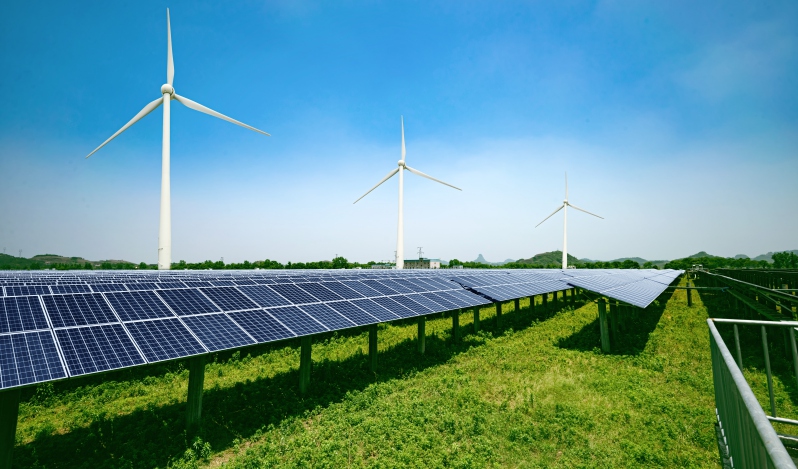
Scholar explains how regulators can use artificial intelligence as an effective tool for slowing climate change.
Unprecedented increases in global temperatures are unequivocally caused by humans, according to the United Nations Intergovernmental Panel on Climate Change (IPCC). A “strong and sustained reduction” in greenhouse gas pollution is necessary to limit further climate change, and every country must make unprecedented changes, reports the IPCC.
In an article, Amy L. Stein, a professor at the University of Florida Levin College of Law, argues that artificial intelligence could play an important role in reducing greenhouse gas emissions in the electric power industry. Given that electric power accounts for almost 25 percent of greenhouse gas emissions worldwide, Stein sees a role for artificial intelligence in optimizing the power grid, increasing energy efficiency, and enhancing reliability and resiliency. Furthermore, Stein argues for the use of regulation as a tool to offset limitations of using artificial intelligence.
Artificial intelligence—also known as machine learning and automated data analytics—can optimize the power grid’s energy use by helping utility companies manage an increase in renewable energy sources, such as solar and wind power. Stein explains that artificial intelligence can identify factors that most impact energy demand and immediately optimize energy output. For instance, artificial intelligence can learn “the thermal properties of a home, the local weather conditions, the way these conditions impact heat flows of a home, and user preferences, as well as adapt energy consumption against real-time price signals.”
Stein also explains how artificial intelligence can target energy inefficiencies. Nearly 68 percent of energy produced in the United States is “lost to the environment,” she observes. This lost energy often takes the form of “waste heat, such as the warm exhaust from automobiles.” Stein suggests that artificial intelligence can help isolate would-be rejected energy before it is lost, just as when Google used artificial intelligence to reduce its data centers’ excess heat production by 40 percent. Addressing energy inefficiencies, Stein argues, can have “enormous impacts on carbon emissions,” perhaps reducing greenhouse gas pollution in half by 2050.
Stein says that artificial intelligence can also help enhance the reliability and resiliency of the electric power grid. Blackouts harm the environment because they create “downtime” in the power grid that requires significant energy to overcome. Artificial intelligence can predict impending power outages by accurately forecasting weather patterns and rapidly assessing the power grid for weak spots. This assessment reduces “catastrophic” environmental harm because it allows utility companies both to prevent outages and respond more quickly when one occurs.
Despite the potential benefits of using artificial intelligence to reduce greenhouse gas emissions in the electric power industry, Stein concedes that this technology does present some tradeoffs.
If not used efficiently, artificial intelligence can itself increase environmental harm. For instance, data processing centers use about 2 percent of the global electricity supply. By 2025, that number could rise to between 8 and 21 percent. Requiring researchers to disclose how much energy an artificial intelligence tool will emit, Stein claims, can temper negative environmental impacts.
One way to limit artificial intelligence’s negative effects would be to create certification requirements, similar to the regulations used to label organic food. Stein explains that regulators could create a system that labels “carbon-neutral artificial intelligence as ‘green’ and non-carbon-neutral artificial intelligence as ‘red.’” She posits that these labels will increase transparency and encourage researchers to create more artificial intelligence that has a positive or neutral impact on the environment.
Stein acknowledges that artificial intelligence may also increase data privacy concerns. For example, smart meters—devices used to read energy-use patterns in homes—reveal behavioral patterns, such as bedtimes, work departures, and vacations. This information can be exploited, such as for planning home invasions or identity theft.
To offset data privacy concerns, Stein argues that the government can mandate utility companies to anonymize certain data. For instance, the Health Insurance Portability and Accountability Act requires that protected health information is “not individually identifiable.”
Stein further explains that data privacy concerns can be eased by regulating data ownership, use, and distribution. Colorado, for example, regulates the use of smart meter data by only allowing third party access in emergency situations. Stein contends that regulators can lessen data privacy concerns by creating policy that adequately weighs the public interest, industry concerns, and individual privacy protection.
Stein acknowledges that regulating artificial intelligence will be difficult because it requires administrative law to adapt as quickly as technology does. But in the end, she concludes that the gravity of climate change combined with artificial intelligence’s promise make it “too important not to try.”



